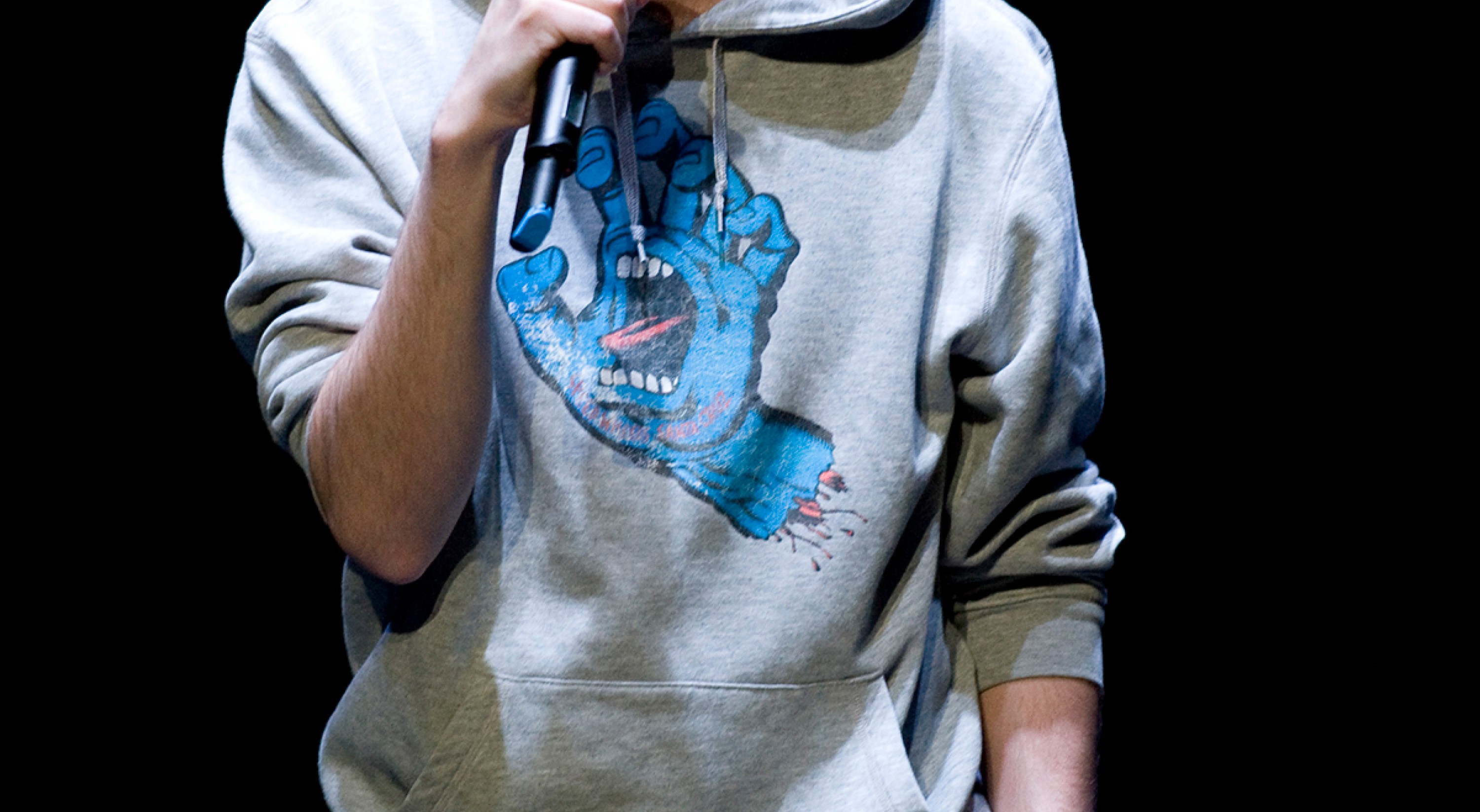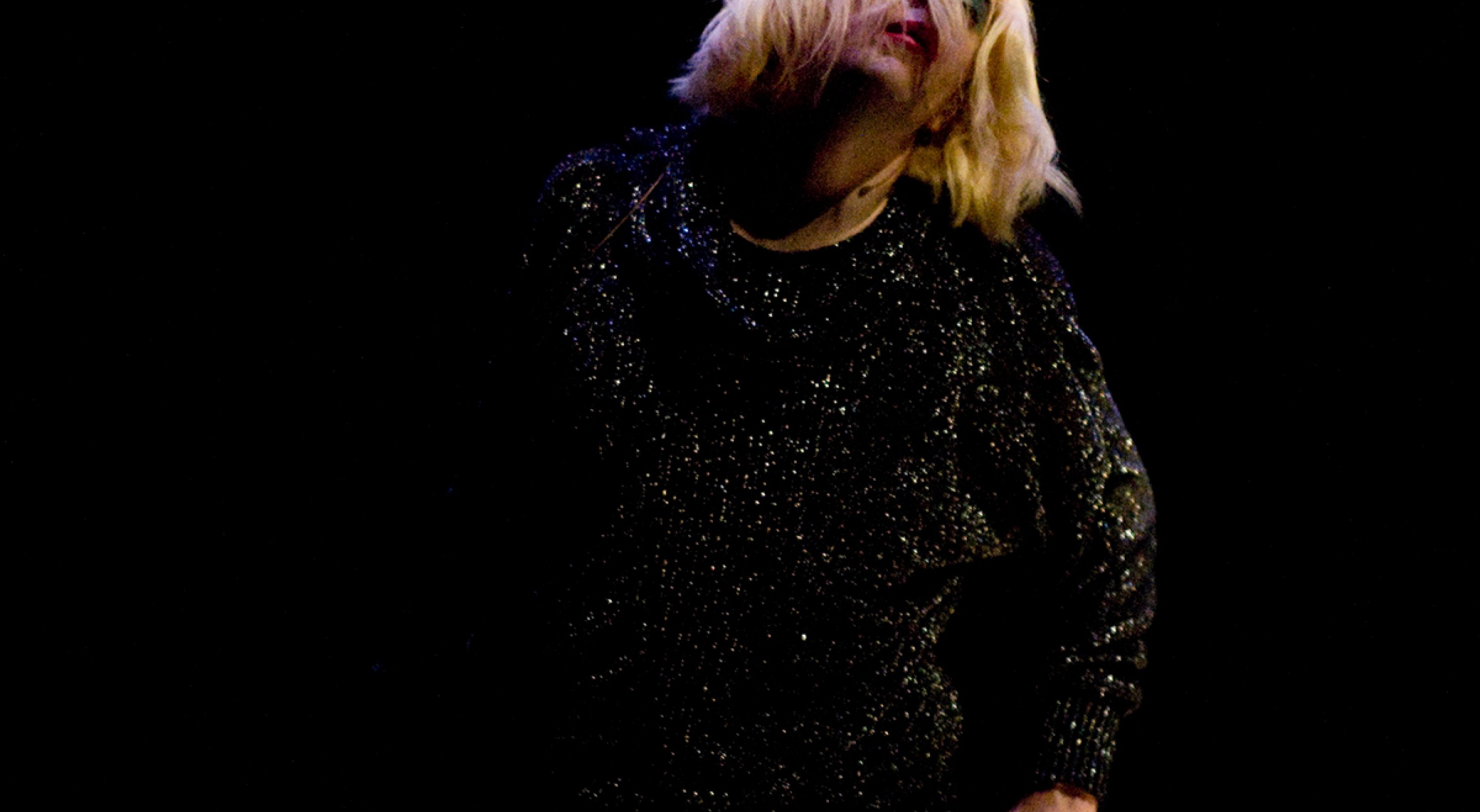Jonathan Capdevielle
Adishatz / Adieu
decemberdec 12 - january – jan 12
Devised and performed by Jonathan Capdevielle
Lighting, Patrick Riou
Artistic collaboration, Gisèle Vienne
External advice Mark Tompkins
Sound assistant, Peter Rehberg
Touring Artistic assistant, Jonathan Drillet
Stage manager, Christophe Le Bris
Sound , Johann Loiseau
Management and administration Fabrik Cassiopée – Isabelle Morel, Manon Crochemore
With the participation of ECUME, the Montpellier university choir, directed by Sylvie Golgevit
with (alternately) Pierre-Yves Bruzzone, Renaud Lebrun, Paco Lefort, Jean-Luc Martineau, Olivier Strauss, and Benoit Vuillon
Executive producer, Association Poppydog (Bureau Cassiopée until January 2016) // Co-produced by ICI – Centre chorégraphique national de Montpellier Languedoc-Rousillon as part of ]domaines[ ; Centre Chorégraphique National de Franche-Comté à Belfort as part of l’accueil-studio (FR) scheme ; BIT Teatergarasjen (Bergen) // In association with Théâtre du Rond-Point (Paris) ; and Festival d’Automne à Paris // With support from CND Centre national de la danse for the studio space availability // With support from DACM and the Quartz – Scène nationale de Brest technical team // In partnership with France Culture // First performed on the 12th November 2009 at ICI – Centre chorégraphique national de Montpellier Languedoc-Rousillon
In a patchwork of baroque repertory, disco hits and traditional singing, Jonathan Capdevielle entangles us in the web of his deepest memories - taking us back to the trials and tribulations of our own adolescence in the process.
In this his directorial debut, Gisèle Vienne’s prized performer, dancer, singer, ventriloquist, virtuoso actor, and unparalleled manipulator of objects, the aptly named “human jukebox” strikes hard. At times moving, funny, raw, extrovert and extravagant, Adishatz / Adieu sees him combining songs and imitations, opening up a pathway into epidemic introspection in the process. Is this a piece of autoportrait, confession, documentary theatre or autofiction? Alternating between real life and dream, his life trajectory is unveiled via the prism of songs. They become the dreamed up pages of a diary, tarnished with anxiety, and from which the shrill cry of a search for identity rings out. His a cappella singing bears his all too vulnerable inner self. At the same time, the voice which breaks through the silence is a multiple one, and which brings out every nuance of the words of the songs. In a similar way, the technique of imitation is used not simply for fun but as a distancing effect in order to blur the boundaries between the humorous and the serious. Sat at a dressing table, during a telephone conversation with his fathers, snatches of which reveal the absence of a mother, the soloist dresses transforms himself into a burlesque Madonna of the French provinces. We are given a radiant tableau of a complex adolescent struggling to find his own way.

